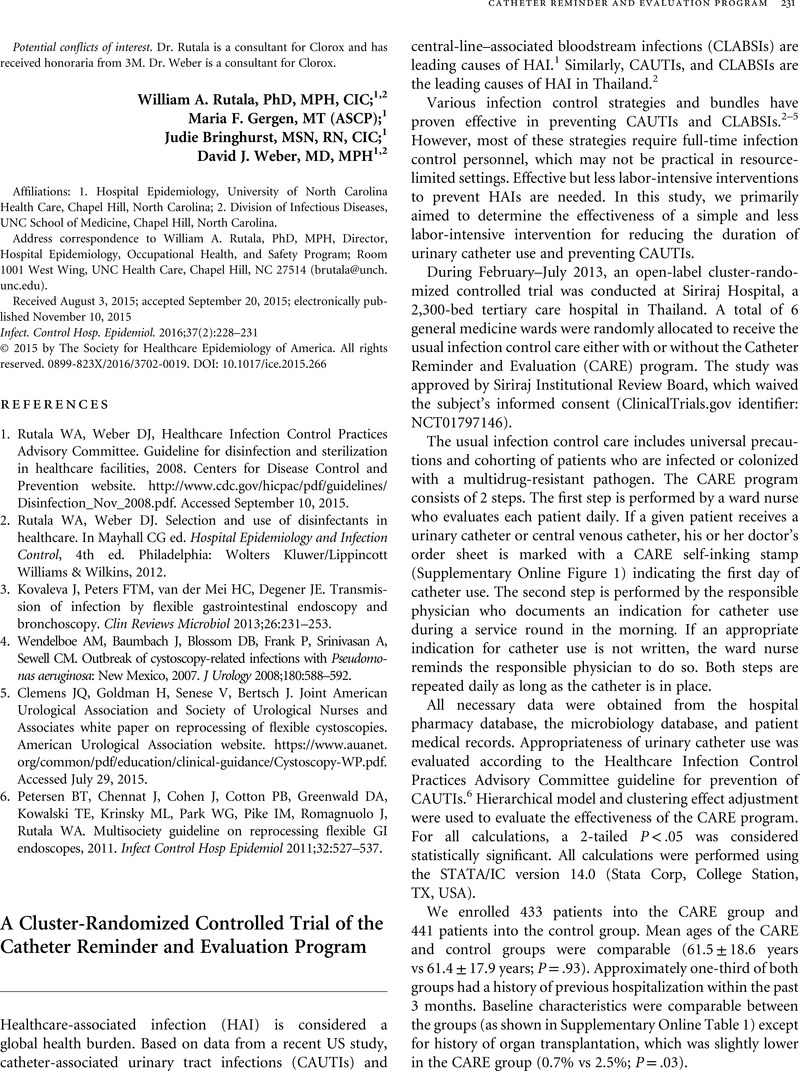Crossref Citations
This article has been cited by the following publications. This list is generated based on data provided by Crossref.
Sitapati, Amy
Kim, Hyeoneui
Berkovich, Barbara
Marmor, Rebecca
Singh, Siddharth
El‐Kareh, Robert
Clay, Brian
and
Ohno‐Machado, Lucila
2017.
Integrated precision medicine: the role of electronic health records in delivering personalized treatment.
WIREs Systems Biology and Medicine,
Vol. 9,
Issue. 3,
Apisarnthanarak, Anucha
Ratz, David
Greene, M. Todd
Khawcharoenporn, Thana
Weber, David J.
and
Saint, Sanjay
2017.
National survey of practices to prevent health care-associated infections in Thailand: The role of prevention bundles.
American Journal of Infection Control,
Vol. 45,
Issue. 7,
p.
805.
Xiong, Zhaoyu
and
Chen, Haiyan
2018.
Interventions to reduce unnecessary central venous catheter use to prevent central-line–associated bloodstream infections in adults: A systematic review.
Infection Control & Hospital Epidemiology,
Vol. 39,
Issue. 12,
p.
1442.
Pantoja, Tomas
Grimshaw, Jeremy M
Colomer, Nathalie
Castañon, Carla
and
Leniz Martelli, Javiera
2019.
Manually-generated reminders delivered on paper: effects on professional practice and patient outcomes.
Cochrane Database of Systematic Reviews,
Vol. 2019,
Issue. 12,
Blumenthal, Jennifer A.
Ormsby, Jennifer A.
Mirchandani, Dimple
Petti, Chonel A.
Carpenter, Jane
Geller, Maggie
Harding, Stephanie N.
O’Brien, Mary
Sandora, Thomas J.
Kleinman, Monica E.
Priebe, Gregory P.
and
Mehta, Nilesh M.
2021.
Stewardship Intervention to Optimize Central Venous Catheter Utilization in Critically Ill Children.
Pediatric Quality & Safety,
Vol. 6,
Issue. 2,
p.
e389.



